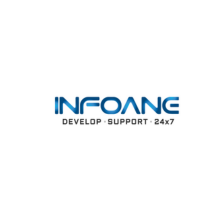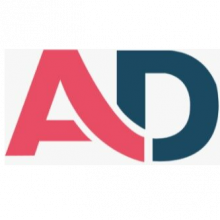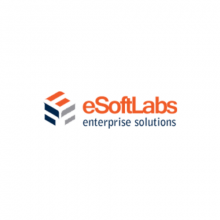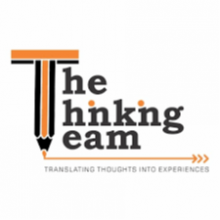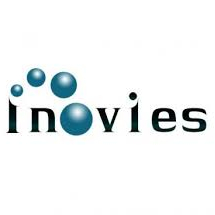Explore Top Angular Development Companies in Hyderabad
Innovate, design, optimize
Outcome Driven Marketing
Services:
We work with you, Not for you..
Services:
TechWebLabs is a dynamic professionally competent IT company based in India, blending a core group of specialists with extensive software programming...
We are a group of techies, marketers, data analysts, and operations professionals who have come together to provide next-gen digital solutions.
Services:
Minovative specialises in technical and IT-related services such as product engineering, infrastructure, artificial intelligence, iOT etc.
Tekskills is leading technology consulting service provider dedicated to delivering expert guidance and recommendations to businesses & organizations
Custom Software Development and IT Services Company
SanHar ABS India Pvt Ltd provides the Best Hospital Management System | Hims | Hmis | Healthcare Software | Mobile App For Doctors | Ehr & More.
At React Masters you will get professional React training from React Masters. Industry experts guide students in our React JS Training Institute.
Services:
India's #1 UI/UX agency
Think and Define
Services:
The Thinking Team is a leading Digital marketing agency in Hyderabad that specializes in services like SEO, SMM, PPC Ads, and Web Development
Services:
Inovies is an IT company and it is working on developing clients website, designing websites, optimizing websites etc.
Services:
Nestack Technologies is an Software Development & IT Staffing Company located in India. We create working relationships based on honesty and trust.
We specialize in digital marketing services, web designing services, mobile app development services, SEO services to increase online visibility.
Services:
mobile app development company hyderabad
Services:
Indias First Metaverse Immersive VR Software
Services:
- 1
- 2
Filter Angular Development Companies in Cities near Hyderabad
Dive deeper and find the company you need close to you or, from a specific city you prefer. Some of the best companies come from smaller places
Find more Angular Development companies around the world
TechBehemoths is the world's most advanced and user-friendly platform to match IT Companies with real clients without hustle.
Hyderabad ICT Focus: General Profile
Hyderabad is one of India’s largest cities and also an important tech hub that gained the name of the „Software Capital” since it played an important role in the digital boom of the country. A big number of IT national and international companies have set their offices in the city, due to the friendly IT ecosystem which allows them to develop and export digital products and services. Some of the most notable names settled in Hyderabad are Google, IBM, SAP, Microsoft, Amazon, Toshiba, and Nokia.
The average yearly salary of a full stack web developer in Hyderabad is $10,000 USD which is 5 times higher than salaries in other industries in the same city. With a total of 600,000+ employees in more than 1500 IT companies, the city shows a high traction power of the entire economy, which mainly focuses on tech giants that provide digital services. In 2020, the export of IT services reached $15 billion registering progress of 17,9% from the previous year. Hyderabad is also a beneficiary of a special economic area for IT and software industries with special facilities for companies that choose to set their offices in the metropolitan area or near it.
As you may already guess, the top IT services in Hyderabad are software development, followed by web development, web design, and cybersecurity. The main reason for these preferences is the talent pool that chooses to specialize in these fields, considering them more profitable.
If you are looking for an IT company located in Hyderabad, then TechBehemoths is the best place to find one. You can choose from the most market-active digital agencies and filter them depending on your preferences and needs, such as focus area, reviews, budget, and experience.
What is Angular and what are its benefits for your projects?
Angular (formerly AngularJS) is a popular open-source web application framework maintained by Google and a community of developers. It's used for building dynamic, single-page web applications (SPAs) and web-based applications in general. Angular provides a structured and organized way to create complex web applications by extending HTML with additional features and enabling the development of interactive, responsive, and maintainable front-end web interfaces. Here are some key aspects and concepts of Angular:
-
Component-Based Architecture
-
Templates
-
Directives
-
Dependency Injection
-
Services
-
Routing
-
Observable and RxJS
-
Modules
-
Testing
-
Cross-Platform
Angular's structured approach, strong tooling, and vibrant ecosystem of libraries and extensions make it a powerful framework for building modern web applications. It is particularly well-suited for large and complex projects where maintainability and scalability are crucial.
Companies may choose Angular over other front-end frameworks for their projects for a variety of reasons, depending on their specific needs and priorities.
-
Google Backing: Angular is developed and maintained by Google. This association often gives companies confidence in its long-term support, stability, and continuous improvement. Google's involvement is seen as a sign of reliability and commitment to the framework.
-
Mature and Established: Angular has been around for a while and has a strong track record of being used successfully in large-scale enterprise projects. It has a well-defined architecture and best practices, which can be beneficial for maintaining and scaling applications over time.
-
TypeScript Support: Angular is built with TypeScript, a statically-typed superset of JavaScript. TypeScript provides better tooling, code maintainability, and catches errors at compile time, which can reduce bugs and enhance code quality, making it attractive to companies that prioritize robust code.
-
Full-Featured Framework: Angular provides a comprehensive set of tools, libraries, and features out of the box, including routing, form handling, HTTP client, and more. This can save development time and effort compared to integrating multiple third-party libraries in other frameworks.
-
Two-Way Data Binding: Angular offers powerful two-way data binding, which allows for automatic synchronization between the data model and the view. This feature can make it easier to develop interactive and responsive user interfaces.
-
Large and Active Community: Angular has a large and active community of developers and a wealth of resources, including documentation, tutorials, and third-party libraries. This can be beneficial for finding solutions to common problems and getting support when needed.
-
Enterprise-Ready: Angular provides features like dependency injection, modularity through modules, and a strong emphasis on testability. These characteristics are well-suited for building robust and maintainable enterprise-level applications.
-
Strict Coding Standards: Angular enforces a set of coding standards and best practices, which can lead to more consistent and readable code. This can be important for companies with multiple developers working on the same codebase.
-
Cross-Platform Development: Angular can be used for building both web and mobile applications. Companies looking to develop applications for multiple platforms may choose Angular for its ability to share code between web and mobile apps using technologies like NativeScript or Ionic.
-
Integration with Backend Technologies: Angular can easily integrate with various backend technologies and APIs. This makes it suitable for projects where the front end needs to communicate with different types of server-side applications.
-
Security Features: Angular provides built-in security mechanisms to help prevent common web vulnerabilities like Cross-Site Scripting (XSS) and Cross-Site Request Forgery (CSRF). This can be crucial for projects with high security requirements.
-
Ecosystem and Tooling: Angular has a rich ecosystem of tools, extensions, and IDE support, including Angular CLI for project setup and management. This can streamline development workflows and improve productivity.
Ultimately, the choice of Angular or any other framework depends on the specific project requirements, the development team's expertise, and the company's long-term goals. Companies evaluate various factors to determine which framework aligns best with their needs, resources, and priorities.






